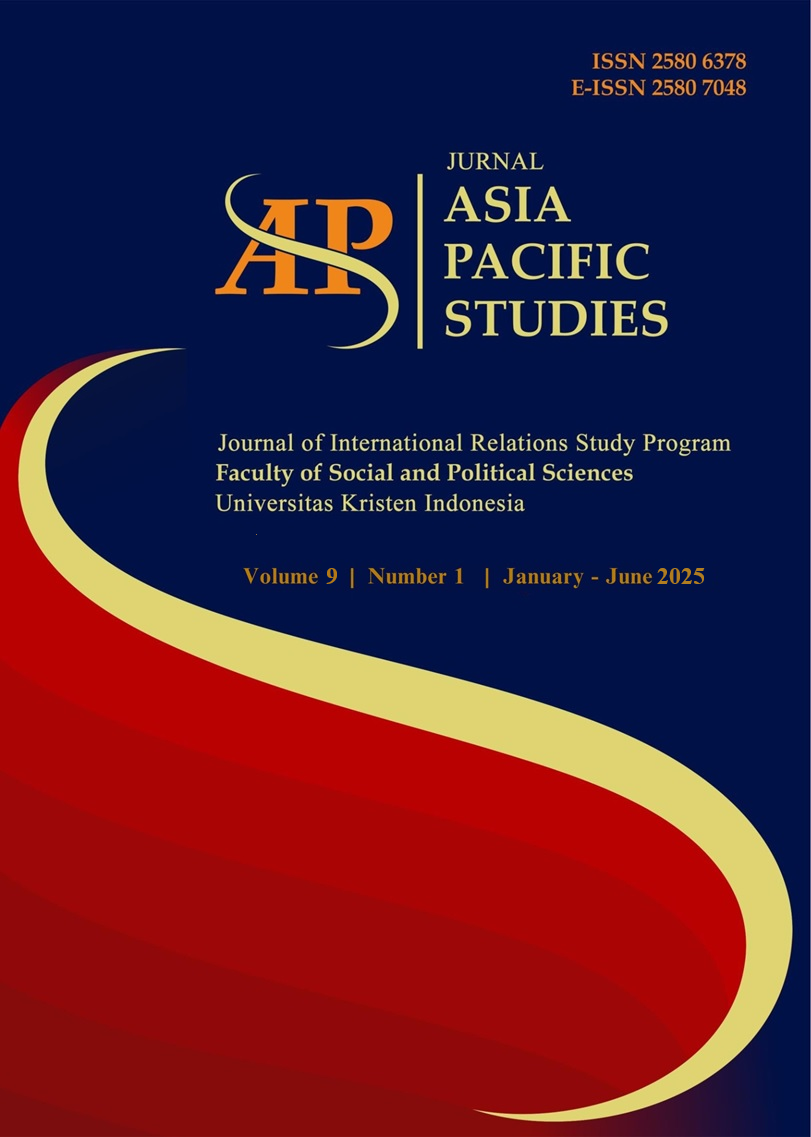CHINA'S LEADERSHIP STRATEGY THROUGH MARITIME SILK ROAD INFLUENCE ON THE SOUTH CHINA SEA DISPUTE
DOI:
https://doi.org/10.33541/japs.v9i1.6628Abstract
This study analyzes the strategic motivations behind China's claims in the South China Sea (SCS), utilizing Alfred Thayer Mahan's maritime geopolitics and John P. Lovell's foreign policy theories. Through a qualitative explanatory approach, findings show the SCS holds immense strategic, economic, and geopolitical value due to its resources and critical shipping lanes. China demonstrates a firm commitment to its unilateral claims via militarization, artificial island construction, and economic diplomacy like the Belt and Road Initiative (BRI). The analysis indicates China’s policy transcends historical or security drivers, aiming instead for long-term maritime dominance as a key instrument of national power. Its leadership strategy leverages economic strength and regional diplomacy to secure cooperation from ASEAN nations on its claims, while simultaneously avoiding international legal pressure.













